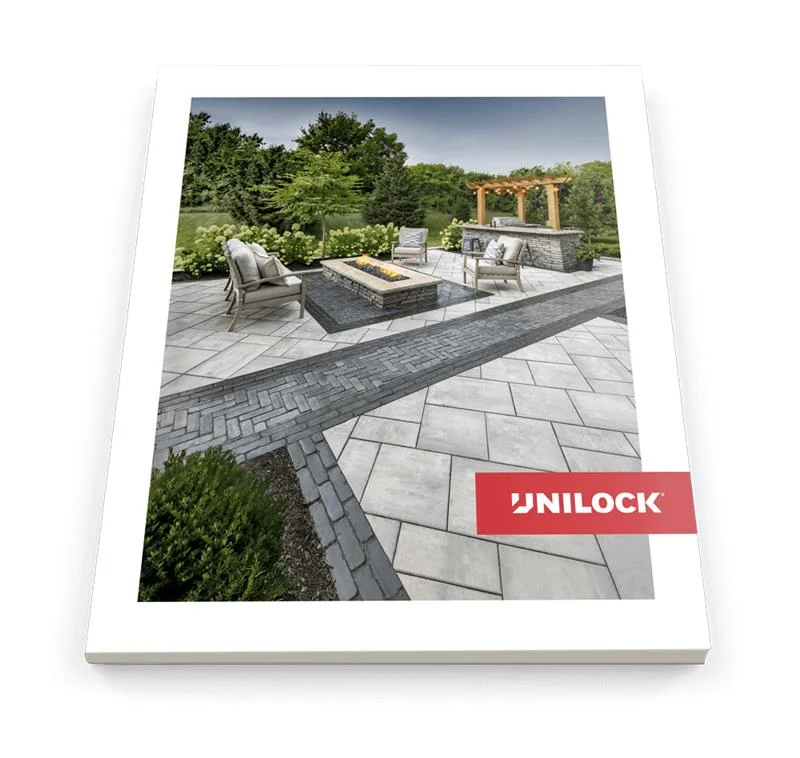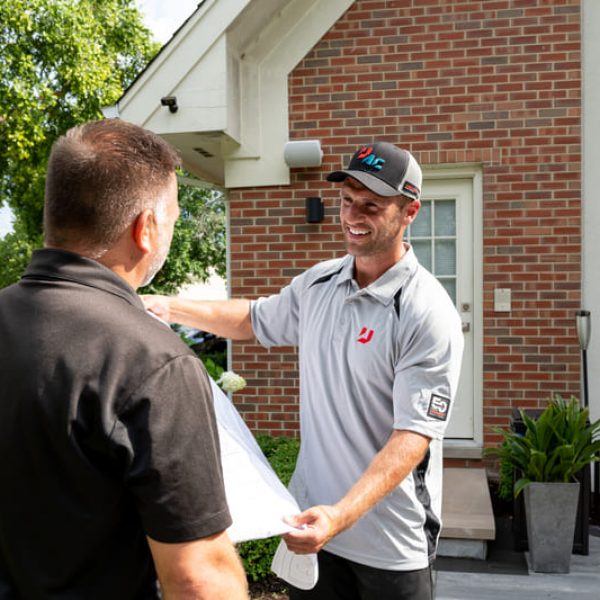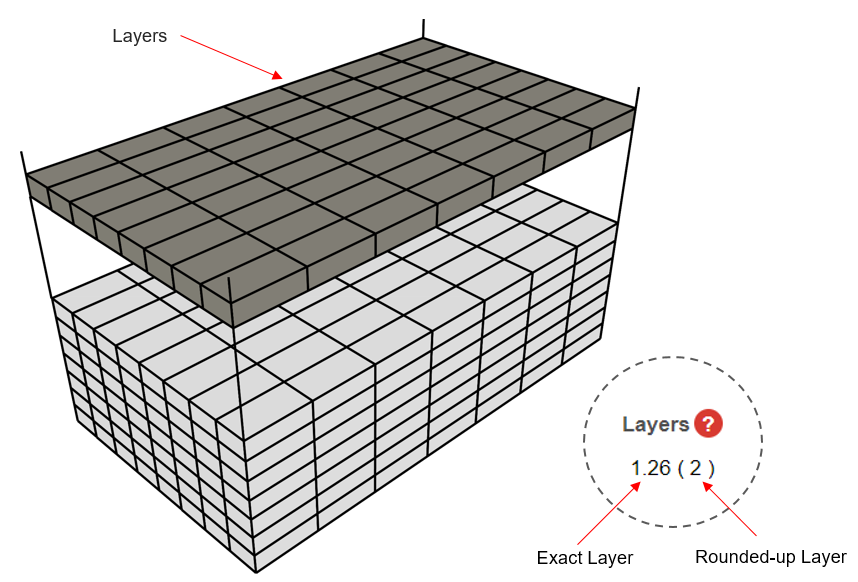Working with a Unilock Authorized Contractor is working with the best of the best. Our UACs possess the knowledge and expertise to bring your dream project to life, and deliver stunning results that will exceed your expectations.
Brick Pavers vs. Concrete Pavers: Choosing a Material for Your Outdoor Project
Whether on a walkway, driveway, or patio, both concrete pavers and clay brick pavers offer a measure of durability and a variety of style options.
But what are the key differences between the two, and which one should you choose for your project?
In this article, we’ll provide a full breakdown of concrete pavers vs. brick pavers, and compare the two in terms of style, maintenance, cost, and other key touchpoints.
Elevate your hardscaping project with Unilock. Explore our concrete pavers!
What’s the Difference Between Brick Pavers and Concrete Pavers?
Brick pavers and concrete pavers differ in a number of important ways, including the way they look and function, the material they’re made out of, and how they’re formed.
Brick pavers are molded out of a natural clay blend and fired in a kiln, while concrete pavers are composed of a cement and aggregate mixture that is molded, and then air-dried.
The Look and Function of Concrete vs. Brick Pavers
When choosing between concrete and clay brick pavers for your hardscaping project, consider the style you are trying to achieve, and the way the paving will need to function in your outdoor space size.
Here’s a side-by-side comparison chart to help you make your decision:
| Characteristic | Concrete Pavers | Brick Pavers |
| Size | Extensive selection of sizes | Limited selection of sizes |
| Shape | Wide range of shapes to choose from | Only comes in a rectangle shape |
| Color | Wide range of colors to choose from | Limited to shades of red, brown, and pink |
| Texture | Many variations of texture, from smooth to rough | Rough texture |
| Flexibility | Versatility in design can accommodate different patterns and applications, including large format concrete pavers being used on pedestals for roof decks. | Limited pattern styles |
| Durability | Slip-resistant, durable, and does not require sealing | Durability depends on the quality manufacturer |
| Maintenance | Concrete pavers with polymeric or joint sand require minimal maintenance | Brick pavers that employ polymeric or joint sand require minimal maintenance |
| Cost | Average between $5 and $10 per square foot. Larger sizes of concrete pavers help to reduce installation labor | Average between $4 and $10 per square foot |
Concrete Paver Characteristics
Considering concrete pavers? Here’s a more detailed breakdown of size, shape, and other key factors.
1. Size
Concrete pavers come in many sizes, from small 4″x8″ and 6″x6″ stones to larger 24” x 36″ slabs, as well as long linear planks.
The size of the pavers you choose should ideally match the scale and application of your hardscape project.
For example, if you’re constructing an intimate patio for entertaining guests, opt for small pavers, and if you’re working with a larger outdoor space, like a pool deck surround, opt for large format slabs instead.
2. Shape
From rectangular and hexagon-shaped pavers to concrete that has interlocking grooves, our concrete pavers come in a wide range of shapes you can choose from.
3. Color
From neutral shades of cream to darker tones with various color blends, concrete pavers are available in an extensive range of colors and shades.
Using two different colors can add creativity and style to your outdoor space.
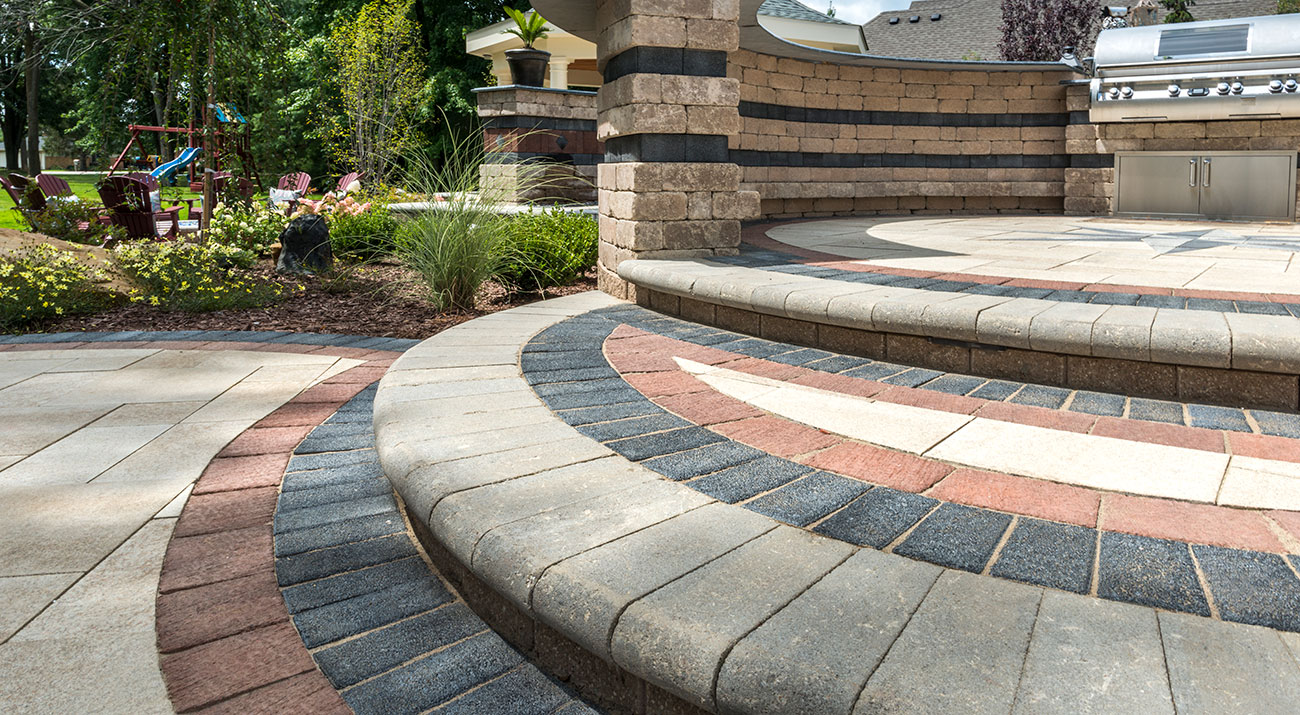
4. Texture
Concrete pavers offer diverse finishes and textures, from rustic designs like Brussels Block® and Mattoni™ to modern textures such as Series™ and Il Campo®, as well as stone textures that evoke a sense of old-world charm, like the polished Courtstone® or the timeless appeal of textured Richcliff®.
The texture you choose can play a key role in the design of your hardscaping project. For example, when designing your in-ground pool deck, you might opt for a slightly textured paver to help mitigate against slips.
5. Flexibility
When it comes to concrete paver patterns and styles, the only limit is your imagination.
From traditional herringbone patterns to a modular fan layout, or even an asymmetrical zigzag, concrete pavers provide ample opportunity to show off your style and complement your home and landscaping.
6. Durability
Unlike asphalt, poured concrete, or stamped concrete which tends to crack, expand, or contract with seasonal temperature changes, concrete pavers are resistant to wear and tear, freeze/thaw cycles, and UV rays, allowing you to create a surface that can withstand heavy foot and vehicle traffic.
7. Maintenance
Concrete pavers require minimal upkeep to keep them looking as good as the day they were installed. Cleaning them with basic soap and water a couple of times a year can help keep these pavers looking their best.
To keep your pavers in tip-top shape:
- Fill a bucket with warm water and add a bit of dish soap until a nice, soapy mixture is achieved
- Pour the solution on the paver surface and let it sit for 5 minutes
- Use a stiff bristled broom to scrub off the cleaning solution
- Rinse clean with water using a hose or low-pressure washer
In addition to cleaning, you may want to consider sealing your pavers to protect the surface and enhance their surface color, or to make the surface a bit easier to clean.
Note: Unilock pavers with EasyClean™ do not require sealing because the sealing is applied to the paver at the factory level.
If your pavers are not manufactured with EasyClean, then sealing your pavers will help to:
- Prevent stains from taking hold
- Enhance the color of your pavers
8. Cost
The cost of concrete pavers varies based on the exact type of pavers you use.
Without installation fees, concrete pavers may cost on average anywhere between $5 and $10 per square foot.
Shop Unilock pavers. Explore our selection!
Brick Paver Characteristics
From shapes to colors and overall cost, here’s how brick pavers fare against concrete pavers.
1. Size
Unlike concrete pavers, brick pavers do not have an extensive selection of sizes.
Brick pavers are typically a simple rectangular shape approximately 4” x 8”. This size may vary based on the manufacturer.
2. Accuracy
One stark difference between concrete pavers and brick pavers is that clay bricks tend to be slightly irregular in size, which makes it more difficult for the installer to install them straight, which can increase the cost of installation.
3. Color
Brick paver colors depend on the color of the clay used, limiting your choice to shades of red, pink, and brown.
While you can only select from a few variations, brick pavers do retain their color (even decades in!) despite being exposed to excessive sunlight and UV rays.
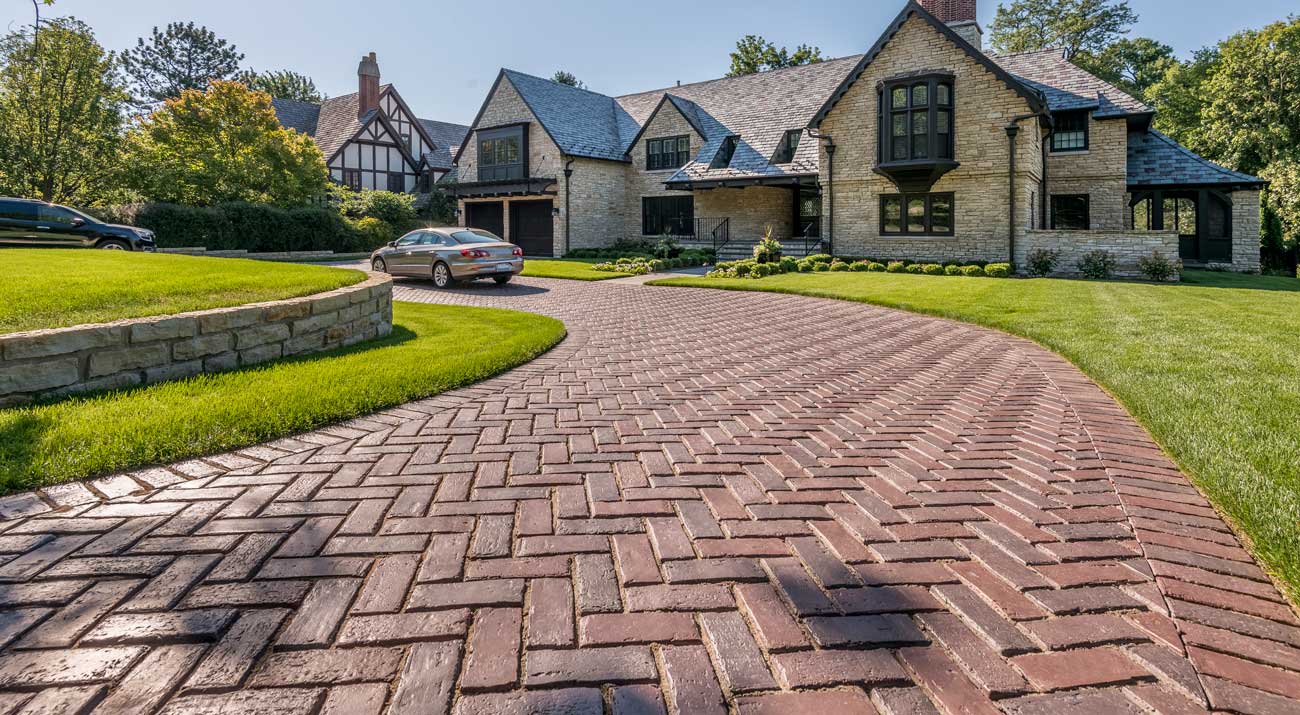
4. Texture
The texture of clay brick pavers varies based on their manufacturing process, often featuring a rough and porous surface.
Clay brick pavers are commonly used for driveways and walkways, to create a traditional or rustic look and feel.
5. Flexibility
Concrete pavers offer a wide range of design options thanks to the variations in shapes and sizes, while clay brick pavers tend to be limited to stacked, running bond, herringbone, and basket-weave paver laying patterns.
6. Durability
Clay bricks have proven their longevity when used on commercial and residential buildings, but when it comes to paving surfaces, opting for high-quality, albeit pricier, clay bricks is crucial. Inexpensive clay pavers will fail in only a few short years.
Clay brick pavers, in most cases, are acceptable for pedestrian-use areas, such as commercial streetscapes and residential walkways.
7. Maintenance
Clay brick pavers require minimal maintenance and upkeep. A simple soap and water solution can help clear most spills, and stains that may appear on their surface.
Because of their rough surface, clearing snow from a clay brick paver surface can be difficult.
8. Cost
Installing brick pavers may be costly when compared to concrete pavers. This difference comes down to the challenges involved in manufacturing clay bricks, which include the extended time required for drying and firing the clay, as well as installation.
Explore the Highest Quality Concrete Pavers at Unilock
At Unilock, we have dedicated years to building world-class outdoor spaces across Canada and the United States. As a market leader in the retaining wall and paving stones industry, we manufacture the highest class of products along with unrivaled customer service.
The best part? We offer a Transferable Lifetime Guarantee on our concrete paving stones and retaining wall units for residential use.
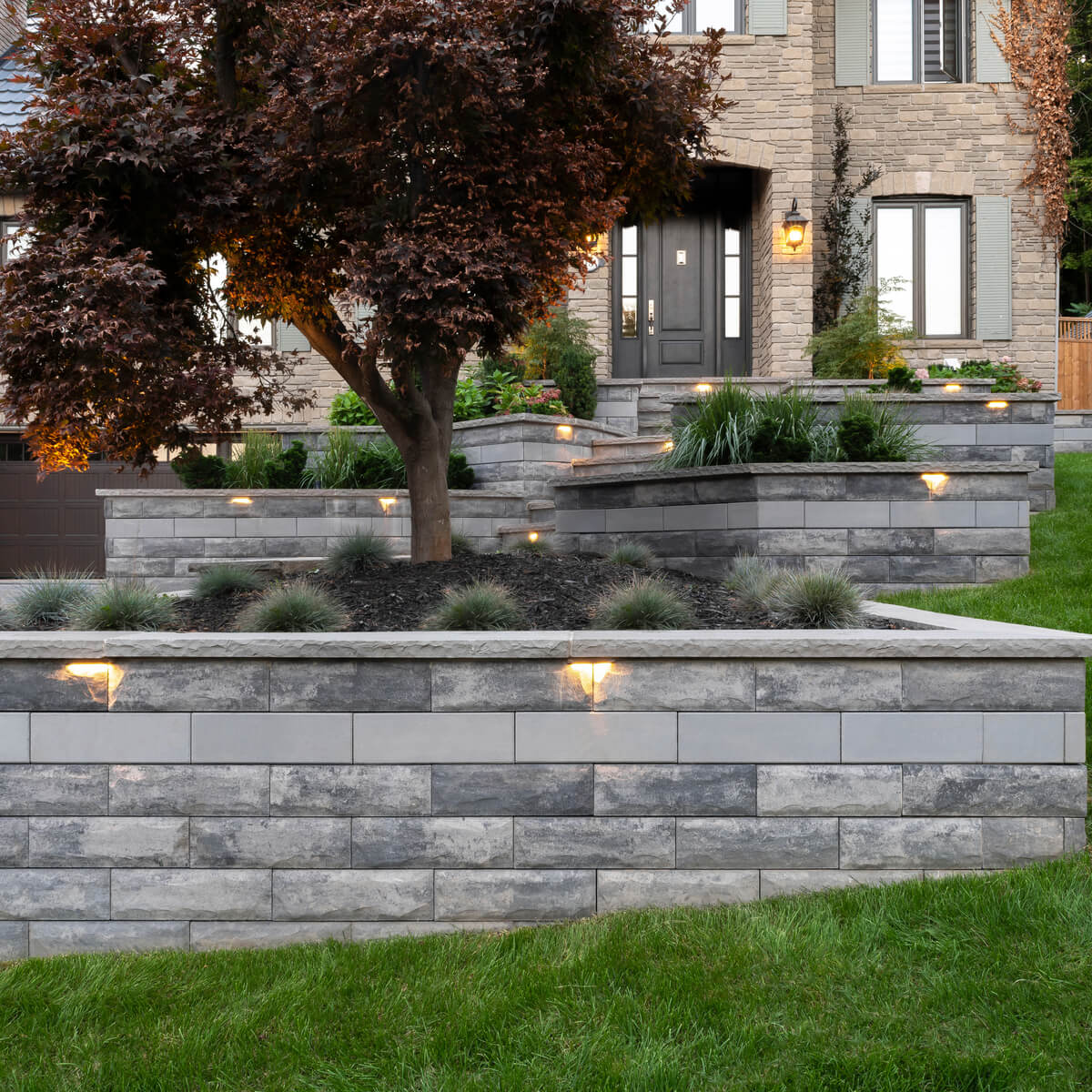
Whether you’re looking to create your driveway or build an intimate patio to enjoy with family and friends, we have pavers for every hardscaping project.
Some of our most popular concrete pavers include:
- Beacon Hill™ Smooth – Modern with a smooth finish, Beacon Hill Smooth is the perfect pavers solution for contemporary walkways and patios.
- Copthorne® — Inspired by the streets of Europe, Copthorne pavers are ideal for curved walkways and accent borders.
- Courtstone® – The timeworn look of Courtstone brings a luxurious, old-world elegance to driveways and walkways.
- Umbriano® — A favorite for its sleek, modern finishes, Umbriano is manufactured with ColorFusion™ Technology, offering a non-slip surface texture that resembles natural granite.
When you’re ready to start your outdoor dream project, book with a Unilock Authorized Contractor, who possesses the expertise and knowledge of Unilock paver products, and the know-how to get your hardscape project done right.
Ready to transform your outdoor space? Find a Unilock Authorized Contractor
Related
Articles

We’re Here
To Help
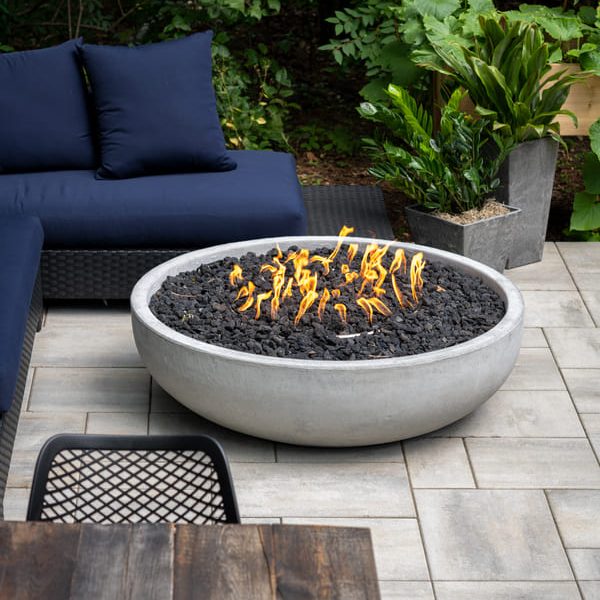
Browse our Design Idea Catalog
Explore endless design possibilities through our Design Idea Catalog. Browse our extensive portfolio of paver and wall products, and get inspired by our outstanding design projects that will fuel your creative expression.

Visit an Outdoor Idea Center
Experience the beauty and quality of Unilock paver and wall products in a life-sized setting by visiting a local Outdoor Idea Center. Our knowledgeable and friendly staff are on hand to answer any questions and offer free product samples.
